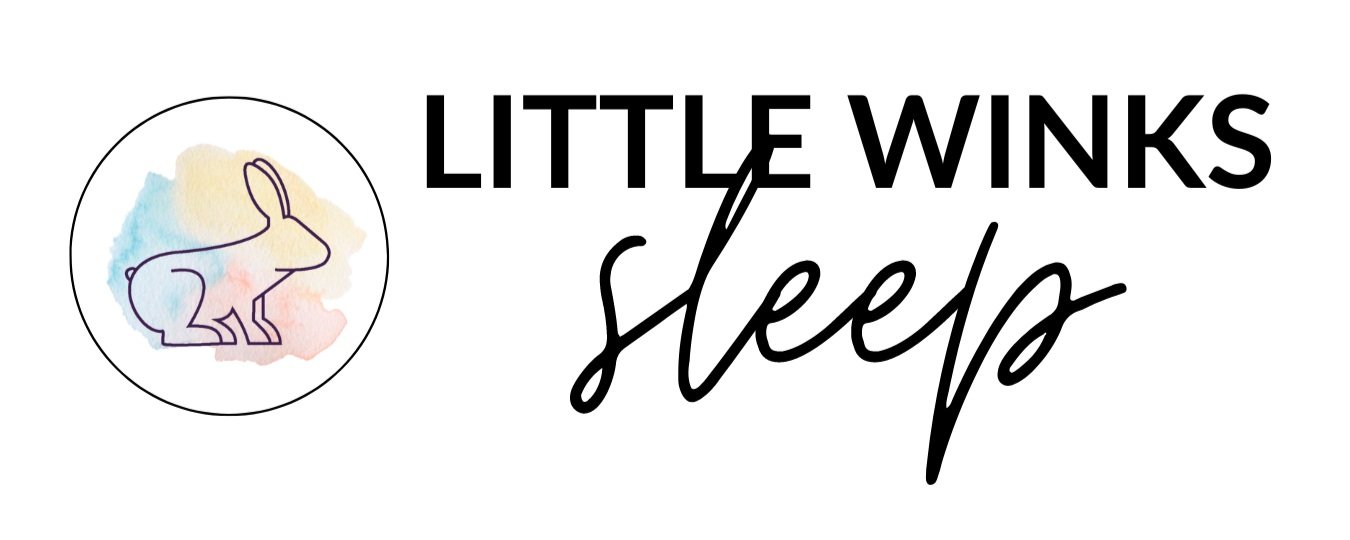When should my baby sleep through the night?
Let me share with you The Tale of Two Mothers.
There was once a young mother whose baby was 3 weeks old,
crying through the night with a sound loud and bold.
The mother woke repeatedly to soothe her babe so small,
exhausted from the effort that each day took quite a toll.
Though she loved to hold her wee one close,
she wondered to herself one question the most.
While the sun shone bright and when the moon reflected its light,
she asked herself over and over: When will my baby sleep through the night?
The second mother in our tale had a child the age of 2.
Her child, though adorable, was up the whole night through.
Every time she tried a bedtime routine,
felt like she had to scream, and asked herself, “This sleep business, what does it mean?
Will I ever get to slumber the night through?
I sincerely love this child, but whatever am I to do?”
The point I’m trying to make? Sleeping through the night is not about age. We work with clients from 8 weeks to 10 years, and most of them struggle with sleeping through the night because of external sleep associations, changes needing to be made in their routine, or timing with naps.
So, the question becomes when can my baby sleep through the night?
Babies no longer require night feeds once they enter the 13-15 lbs range (I see you mama, popping that champagne).
That being said, some babies need night feeding for longer due to medical concerns, and we always recommend that you follow the advice of your pediatrician.
Why might you want to keep night feeds?
You love that extra mama-baby time
Your baby needs them for medical reasons
You think your baby needs them because they wake up at the same time each night to feed
I’ve got another champagne-worthy fact for you: Babies or toddlers who are still being fed at night may not need the feed(s) ... even if they are waking up at the same time each night to eat.
Why? Well, because it’s a habit.
If you set an alarm for 2am, for example, to wake up and eat, and you do that for several weeks, then even after that alarm no longer goes off, your body will eventually wake itself and feel hungry. That doesn’t mean that you need food or do not have the capacity to make it through the night without risking your health.
Check out the video below to learn more about why your baby may be having so many night feeds:
Now let’s talk about why you might want to move out night feeds:
You miss sleeping through the night
Your mental and physical health and taking a hit
Your baby is ready to move them out
How do you start to move night feeds out?
Feed the baby when they wake, not when you wake them.
If we’re setting that alarm to go off a couple of times a night, habits will form. Let baby wake and tell you when they are hungry.
When you hear baby call for you, wait 10 minutes before responding.
Sometimes baby is calling (even crying) out in their sleep. When we go in immediately to respond, this causes an actual wake up and is typically followed by a (potentially unnecessary) feed. If they aren’t really hungry? They’ll fall back asleep in those 10 minutes.
This gives you a chance to breathe and disassociate your anxiety from feeding.
This also helps you and baby develop healthy habits that create boundaries around immediate gratification.
*A word of caution: Do not try to drop feeds while starting solids. Sometimes babies can struggle with their sleep as their tummy processes and digests new foods. If you move out night feeds before or after introducing solids, it will make things go much more smoothly.
Moving out night feeds doesn’t have to be painful. We can use a number of strategies to move night feeds out. If you’re not sure about the best approach for your baby, let’s talk.
We offer a free 15 minute call option with one of our Certified Sleep Coaches. And mama, the entire team at Little Winks Sleep is here for you. In those 15 minutes, we can help you diagnose where those sleep challenges are coming from, offer helpful tips, ask clarifying questions, and make a plan to support you and your little one.
Book your free 15 minute call HERE.
Happy champagne-popping,
Anna



